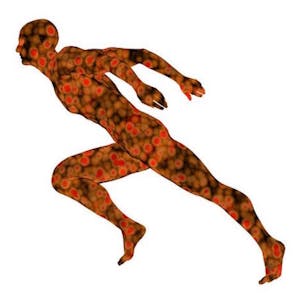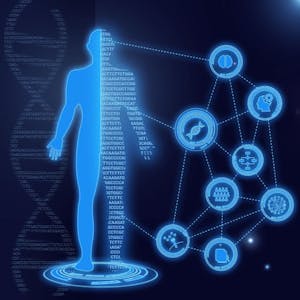Science of Exercise
About this Course
Learners who complete Science of Exercise will have an improved physiological understanding of how your body responds to exercise, and will be able to identify behaviors, choices, and environments that impact your health and training. You will explore a number of significant adjustments required by your body in order to properly respond to the physical stress of exercise, including changes in carbohydrate, fat and protein metabolism, nutritional considerations, causes of muscle soreness & fatigue, and the effectiveness and dangers of performance enhancing drugs. Active learning assessments will challenge you to apply this new knowledge via nutrition logs, heart rate monitoring, calculations of your total daily caloric expenditure and body mass index (BMI). Finally, learners will examine the scientific evidence for the health benefits of exercise including the prevention and treatment of heart disease, diabetes, cancer, obesity (weight loss), depression, and dementia.Created by: University of Colorado Boulder

Related Online Courses
The objective of this course is to provide an overview of the culture of ancient Rome beginning about 1000 BCE and ending with the so-called \"Fall of Rome\". We will look at some of the key people... more
An increasing volume of data is becoming available in biomedicine and healthcare, from genomic data, to electronic patient records and data collected by wearable devices. Recent advances in data... more
At the end of this project, you will be able to use the different features in Microsoft Word to create a lesson plan. You will be able to create a table with content. Additionally, you will be able... more
Many courses in the diversity, equity and inclusion field acquaint the learner with definitions and concepts that are commonly shared in the field but not much strategy to implement such efforts.... more
This Specialization introduces the U.S. federal tax system via conceptual and applied material. Learners will be able to apply basic principles to settings involving individuals, corporations, and... more







